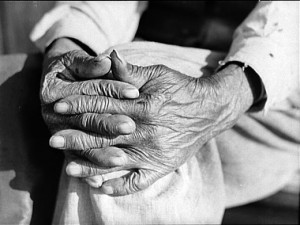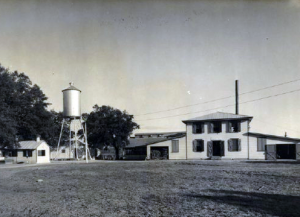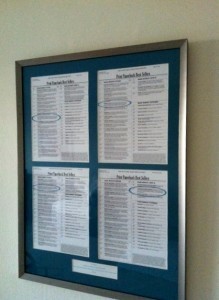Trisha Sugarek's Blog, page 91
April 1, 2014
How to Write a Character Analysis for Writers & Actors!
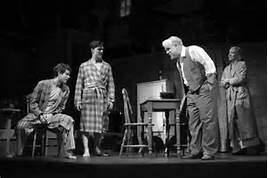 I sat down with some actors the other day and they asked, 'how do I write a character analysis?' And as I answered them I thought how much this applies to writers as well. If you don't know your characters (in your story,novel) your readers will never get to know them.
I sat down with some actors the other day and they asked, 'how do I write a character analysis?' And as I answered them I thought how much this applies to writers as well. If you don't know your characters (in your story,novel) your readers will never get to know them.
After many years of writing, my characters show up in my head but it's my job to 'flesh them out'. Many times I will meet or see a character in real life and they inspire a character for my writing. But, it's still the writer's or the actor's job to give them a story and breathe life into them.
If you're a new writer take the time to write it down, using some of the tools listed here. If you're an actor, it is imperative that you write your character analysis. It not the same as a few random thoughts about your character. Some intangible thing happens when you put pen to paper and get to know who your character is.
1. Let's say that your character's story (or in the script) is 'H' through 'M'. Write/Create their story, 'A' through 'G' (back story) and 'N' through 'Z'. (what happens to them after they leave your story/script). Now you have created their entire life story. It will make your character so much richer.
2. One tool I used as a director and is another great exercise for the actor (or writer): As your character, write down and describe your bedroom in great detail. What kind of bedroom would your character have? What color are the walls? What's on the bed? What's hanging on the walls? What part of the house/apt is your bedroom in? What's in the closet? Is your character neat or messy? Now read it back to yourself. It should tell you much about who your character is.
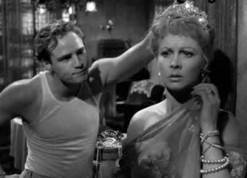 3. Actors: Read through the script and write down EVERYTHING the other characters say about you, including what you say about yourself. This will tell you a lot about your character.
3. Actors: Read through the script and write down EVERYTHING the other characters say about you, including what you say about yourself. This will tell you a lot about your character.
4. Writers: These exercises do not have to show up in your book. They are merely ways to research and explore who your characters are.
5. Actors: If your part is a walk on with three lines, you should still do the work. 'there is no small part....'
6. Explore your character's motivations, goals, needs.
As I write this post I realize that there was more 'flesh' I could put on the bones of my current killer in my mystery 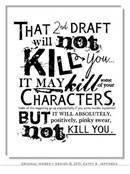 series. See? It works! Just writing about character analysis helped me to develop a character.
series. See? It works! Just writing about character analysis helped me to develop a character.
~~~~~~~~~~~~~~~~~~~~~~~~~~~~~~~~~~~~~~~~~~~~~~~~~~~~~~~~~~~~~~~~~~~~~~~~~~~~~~~~~~~~~~~~~~~~~~~~~~~~~~
DON'T MISS UPCOMING BLOGS featuring INTERVIEWS with best-selling AUTHORS!
In addition to my twice weekly blog I also feature an interview with another author once a month. So come along with me; we shall sneak into these writers' special places, be a fly on the wall and watch them create!
To receive my posts sign up for my  On the home page, enter your email address. Thanks!
On the home page, enter your email address. Thanks!
Writers, Actors! How to Write a Character Analysis?
 I sat down with some actors the other day and they asked, 'how do I write a character analysis?' And as I answered them I thought how much this applies to writers as well. If you don't know your characters (in your story,novel) your readers will never get to know them.
I sat down with some actors the other day and they asked, 'how do I write a character analysis?' And as I answered them I thought how much this applies to writers as well. If you don't know your characters (in your story,novel) your readers will never get to know them.
After many years of writing, my characters show up in my head but it's my job to 'flesh them out'. Many times I will meet or see a character in real life and they inspire a character for my writing. But, it's still the writer's or the actor's job to give them a story and breathe life into them.
If you're a new writer take the time to write it down, using some of the tools listed here. If you're an actor, it is imperative that you write your character analysis. It not the same as a few random thoughts about your character. Some intangible thing happens when you put pen to paper and get to know who your character is.
1. Let's say that your character's story (or in the script) is 'H' through 'M'. Write/Create their story, 'A' through 'G' (back story) and 'N' through 'Z'. (what happens to them after they leave your story/script). Now you have created their entire life story. It will make your character so much richer.
2. One tool I used as a director and is another great exercise for the actor (or writer): As your character, write down and describe your bedroom in great detail. What kind of bedroom would your character have? What color are the walls? What's on the bed? What's hanging on the walls? What part of the house/apt is your bedroom in? What's in the closet? Is your character neat or messy? Now read it back to yourself. It should tell you much about who your character is.
 3. Actors: Read through the script and write down EVERYTHING the other characters say about you, including what you say about yourself. This will tell you a lot about your character.
3. Actors: Read through the script and write down EVERYTHING the other characters say about you, including what you say about yourself. This will tell you a lot about your character.
4. Writers: These exercises do not have to show up in your book. They are merely ways to research and explore who your characters are.
5. Actors: If your part is a walk on with three lines, you should still do the work. 'there is no small part....'
6. Explore your character's motivations, goals, needs.
As I write this post I realize that there was more 'flesh' I could put on the bones of my current killer in my mystery  series. See? It works! Just writing about character analysis helped me to develop a character.
series. See? It works! Just writing about character analysis helped me to develop a character.
~~~~~~~~~~~~~~~~~~~~~~~~~~~~~~~~~~~~~~~~~~~~~~~~~~~~~~~~~~~~~~~~~~~~~~~~~~~~~~~~~~~~~~~~~~~~~~~~~~~~~~
DON'T MISS UPCOMING BLOGS featuring INTERVIEWS with best-selling AUTHORS!
In addition to my twice weekly blog I also feature an interview with another author once a month. So come along with me; we shall sneak into these writers' special places, be a fly on the wall and watch them create!
To receive my posts sign up for my  On the home page, enter your email address. Thanks!
On the home page, enter your email address. Thanks!
March 27, 2014
Lost on a Back Road! (Nostalgia-part 7)
 The other day I was out on errands and spied a 'For Sale/Waterfront'sign . In my neck of the woods that usually means river front and/or marsh land. So I turned around and followed the signs. On a private dead-end road I found the beautiful home on some acreage. I always like to look at real estate and I am always curious about what 'water front' costs. Driving slowly onto the property I began to look for a flyer. Failing that I slowly and respectfully rounded their circular driveway heading back out.
The other day I was out on errands and spied a 'For Sale/Waterfront'sign . In my neck of the woods that usually means river front and/or marsh land. So I turned around and followed the signs. On a private dead-end road I found the beautiful home on some acreage. I always like to look at real estate and I am always curious about what 'water front' costs. Driving slowly onto the property I began to look for a flyer. Failing that I slowly and respectfully rounded their circular driveway heading back out.
I paused at the street and a man, riding a John Deere mower chased me down and asked if he could show me the house. What luck! I was going to be able to see the beautifully restored plantation house. I never could have imagined the story that awaited me!
It sits on three acres with a six car garage, a guest house, a barn and a doll house. The lawns spill down to a large deck overlooking a tidal creek which feeds out to the Vernon River. The live oak trees are hundreds of years old, spanish moss dripping from every branch. The deck has been built around an oak even to the point of interrupting the hand railing to accommodate a branch eighteen inches thick. (it's a southern thing; we love our live oaks.)
But it was the owners' story that I wanted to share with you.
Courtesy of sonofthesouth.net
Dick and Sue bought the working farm and farm house in 1975. Back then, common in those days, the kitchen was outside on a porch so that it wouldn't add to the summer heat within the house. The house was approximately 1,000 sq. feet compared to its 5,000 sq. ft. now.
Part of the sale was that the new owners must care for a middle-aged black man; the grandson of slaves, for the remainder of his life. That in itself was remarkable but they agreed.
Parker Bell was illiterate, didn't know how old he was, didn't know his mother or father's name. He was 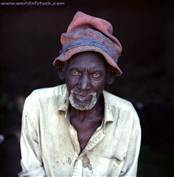 raised on a 'brown farm'. At first I found little history referring to a 'brown farm' but had heard that this is where young children (orphans) were housed after the civil war and into the early 1900's. I wondered if the name was an acronym in reference to John Brown, the abolitionist?
raised on a 'brown farm'. At first I found little history referring to a 'brown farm' but had heard that this is where young children (orphans) were housed after the civil war and into the early 1900's. I wondered if the name was an acronym in reference to John Brown, the abolitionist?
But thanks to a friend, Lori, who loves this kind of research as much as I do....we found the 'Brown Farm' in Savannah, GA., and a census map. 'Young black children who were orphaned in Savannah from the latter part of the 19th century to 1943 had - for a number of reasons - nowhere to live except Savannah's penal farm. There the young children were surrounded by such sights as men in shackles laboring in the fields, windows with bars and chain gangs. The kids were not being punished, but it was common practice for them to be taken there.
Savannah Penal Farm
Because there was no orphanage for black children, Chatham County black youth were often placed at the old "Brown Farm", a 400 acre county penal farm for convicts (located on Montgomery Crossroad near where Lake Meyer is now) where they remained until they reached legal age. The girls were sent to the Chatham County Protective Home, operated by the Savannah Federation of Colored Women's Clubs. This practice went on for years, until Greenbriar Children's Center was established.' (Courtesy Greenbrier Children's Center)
Lori's mother-in-law, Mamie (now 94 years of age) remembers the Brown Farm. She told us, "When I was young, me and a girl was in a fight, and both of us was sent to the Brown Farm. The people in charge there, kept us for thirty days, and we had to wash clothes for the boys that were living there. I believe that old brown farm is where Memorial Hospital is now, just off Waters."
Census map of the Brown Farm and Savannah
Parker Bell lived in the guest house and had the run of the property until his death a few years back. The family treated him like a favorite uncle. He didn't have a social security number and because of his learning disabilities couldn't work an outside job. But he kept busy cleaning up leaves, mowing grass and helping the children with their horses. Dick and Sue kept their promise and supported Parker Bell, financially his entire life.
Dick told me the delightful story of the night they had a dinner party for twelve. In the middle of the meal, Parker walked into the house and into the candle-lit dining room and said, "Mr. Dickie, I caught us a mess of bass outta that creek," proudly holding up a stringer of fish.
My whole adult life I have had my best adventures when I've been lost....and today was no exception. And to other writers out there? Your next story could be around the next bend in the road.
~~~~~~~~~~~~~~~~~~~~~~~~~~~~~~~~~~~~~~~~~~~~~~~~~~~~~~~~~~~~~~~~~~~~~~~~~~~~~~~~~~~~~~~~~~~~~~~~~~~~~~
DON'T MISS UPCOMING BLOGS featuring INTERVIEWS with best-selling AUTHORS!
In addition to my twice weekly blog I also feature an interview with another author once a month. So come along with me; we shall sneak into these writers' special places, be a fly on the wall and watch them create! Dean Koontz just granted me an interview and will be featured here this spring!
To receive my posts sign up for my  On the home page, enter your email address. Thanks!
On the home page, enter your email address. Thanks!
March 25, 2014
Charles Bukowski, as He Lay Dying
Throughout the millennium many cultures have had the tradition of writing a death poem or a death song. In Japan the Samurai/poets would recite their death poem as they opened their own bellies with their sword. 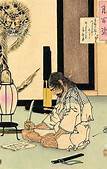 Death poems are typically graceful, natural, and emotionally neutral, in accordance with the teachings of Buddha.
Death poems are typically graceful, natural, and emotionally neutral, in accordance with the teachings of Buddha.
Like a rotten log
half buried in the ground
my life, which has not flowered, comes
to this sad end. Minamoto Yorimasa 1104-1180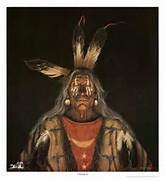 Native American warriors would sing their death song as they rushed into battle.
Native American warriors would sing their death song as they rushed into battle.
'When it comes time to die, be not like those whose hearts are filled with the fear of death, so when their time comes they weep and pray for a little more time to live their lives over again in a different way. Sing your death song, and die like a hero going home.' Unknown
In the collection of Charles Bukowski's work, Pleasures of the Damned, he wrote poetry about dying as he slowly lost his battle with cancer. Beautiful work. Not sad, just reality, simply Bukowski. I have read and re-read this 500+ page tome and gone from laughing at his cat and the mocking bird to mourning his passing.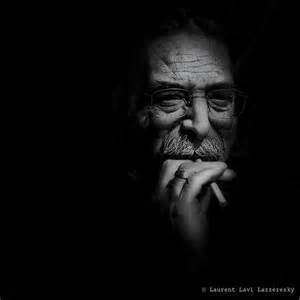 (below) I have fallen in love with this wild, derelict genius and profited by him; I am a better writer for having known him.
(below) I have fallen in love with this wild, derelict genius and profited by him; I am a better writer for having known him.
Sun coming down © Charles Bukowski
no one is sorry I am leaving
not even I;
but there should be a minstrel
or at least a glass of wine.
it bothers the young most, I think:
an unviolent slow death
still it makes any man dream;
you wish for an old sailing ship,
the white salt-crusted sail
and the sea shaking out hints of immortality.
sea in the nose
sea in the hair
sea in the marrow, in the eyes
and yes, there in the chest.
will we miss
the love of a woman or music or food
or the gambol of the great mad muscled
horse, kicking clods and destinies
high and away
in just one moment of the sun coming down?
but now it’s my turn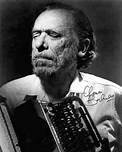
and there’s no majesty in it
because there was no majesty
before it
and each of us, like worms bitten
out of apples,
deserves no reprieve
death enters my mouth
and snakes along my teeth
and I wonder if I am frightened of
this voiceless, unsorrowful dying that is
like the drying of a rose?
And I close this post with my own simple offering.
death comes © Haiku by t. sugarek
death comes silently
death comes with a loud screaming
death at his own hand
death comes suddenly
detroit's bright twisted metal
steam, fire, cold asphalt
boring death, sweet death
slow trip down a lonely road
lines drip, machines beep
History, stories, poets...they all contribute to this writer's imagination and creativity.
Interview with Charles Bukowski (posthumous)
~~~~~~~~~~~~~~~~~~~~~~~~~~~~~~~~~~~~~~~~~~~~~~~~~~~~~~~~~~~~~~~~~~~~~~~~~~~~~~~~~~~~~~~~
DON'T MISS UPCOMING BLOGS featuring INTERVIEWS with best-selling AUTHORS!
In addition to my twice weekly blog I also feature an interview with another author once a month. So come along with me; we shall sneak into these writers' special places, be a fly on the wall and watch them create! Dean Koontz just granted me an interview and will be featured here this spring!
To receive my posts sign up for my  On the home page, enter your email address. Thanks!
On the home page, enter your email address. Thanks!
March 21, 2014
How to Write a Ten Minute Play
 One of my best selling ten minute play is "The Bullies". A ten minute play is 10-15 pages in proper format. Sample.10Min.Play.Format It can have costumes and sets, certainly, but ten minute plays are most popular because of their simplicity. It's more attractive to the director, for economic reasons, if there are no sets, no costumes, ,and minimal props needed.
One of my best selling ten minute play is "The Bullies". A ten minute play is 10-15 pages in proper format. Sample.10Min.Play.Format It can have costumes and sets, certainly, but ten minute plays are most popular because of their simplicity. It's more attractive to the director, for economic reasons, if there are no sets, no costumes, ,and minimal props needed.
The shortness of the ten minute play does not sacrifice excellent writing and content for brevity. Less is more. And it is a great exercise for the writer to hone and edit their writing skills.
1. Format is very important. (see sample above) Buy a play script or go on line to check out a format. If you submit your new play to anyone they will not read it if it is not properly formatted. Notice that the character name is in CAPS and bold, followed with a period. Blocking (action) is in italics and always lower case if appearing in the 'line' of the actor. A 'beat' is a dramatic pause or to enhance the pace of the speech.
2. Each page represents approximately one minute of time on stage so your ten minute play must make every word count.
3. Leave lots of white space. One day when your play is being produced, actors will need a place to make notes in the script during 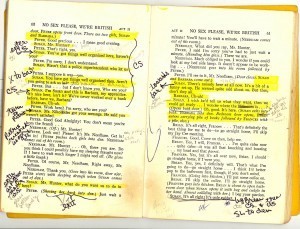 rehearsal. Here is a sample of an actor's (mine) working script. The actor's lines are highlighted and the director's blocking is written in the margins ALWAYS in pencil.
rehearsal. Here is a sample of an actor's (mine) working script. The actor's lines are highlighted and the director's blocking is written in the margins ALWAYS in pencil.
4. Blocking (in italics) is where you, as the playwright, sees the actors moving and when.
Sample.writing.Blocking But, keep it short and sweet. Remember there will be a director who has their own ideas of where he/she wants their actors to be. Be aware of costume changes in your writing. An actor can't exit stage left and enter stage right, seconds later, if you haven't written in the time it will take to give them the time to accomplish a costume change.
5. Your script has to work on a stage. If your story takes place in more than one locale, you have to be aware of the logistics of a 'set' change. So keep it simple to start. If you are ambitious in your setting buy a book on set design to research if your set is feasible. There are some wonderful 'envelope' sets that unfold when you need to change the scene. But you have to consider the budget; would a theatre have the money to build it? Always a worry. In the bullies, even though I have three different locales, there really is no set. The dialogue tells the audience exactly where my actors are. (without furniture or walls).
6. Dialogue: Now here's the sometimes tricky part: everything you want the audience to know, about the story and the characters, is conveyed in the dialogue. Unlike a short story or a novel, where you can write as much description as you'd like, a play script has none of that. NO description.
7. Cast: Always, always tell the reader/director/actor how many people are in the cast and their gender and ages. So in the beginning of your script you will have a 'character list' stating the character's name, who they are germane to the story, and their age and physical appearance. sample.charac.list.page
8. Actors: Ten minute plays usually have a small cast. If you write a script with six to eight to ten men in it, YOU ARE DOOMED. Men are extremely hard to cast (they're just not out there and if they are, their jobs and families prevent them from auditioning). So most directors are looking for a play with a reasonably small cast with more women than men.
9. Subject of your play: If this is your first play writing attempt, write about something you know. One of my early full length plays was based on my time as an actor in Hollywood. 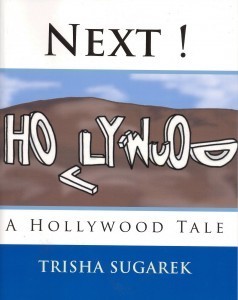
Maybe a family story. If it's pure fiction, make certain that it is sharp, sometimes funny, and always, excellently written!
PS. My web site is dedicated to helping new writers hone their craft. If you have questions, drop me a line. I always love to hear from readers and promise to answer you. T.S.
March 20, 2014
Part 2 of Interview with author, Sherryl Woods
Part 2 of my time with Sherryl Woods. COMING SOON!! August, 2014 Swan Point, A Sweet Magnolia Novel
Q. What makes a writer great?
A. For me what makes any writer great is the ability to tell a story that resonates with readers and touches them in some way. A book that can make a reader laugh or cry or even close the book with a deep sigh of satisfaction is the absolute best. I always aim for that. If I hit the mark even sometimes, it's a wonderful feeling.
Q. and the all important: What does the process of going from "no book" to "finished book" look like?
View out my window of the Bay and Miami
A. Once I know which series a book will be in and which character will "star", I always start out mulling for a few days, jotting down a few notes about key plot points, motivations, conflicts and so on. I am mostly a right-brain writer, so I don't make a list of details about character descriptions or history. Once I understand the basics of the story I want to tell, I start writing scenes for a synopsis.
My synopses tend to be longer than a lot of writers' because I like to get into the voices of the characters and establish the tone of the book at this point. Within a week or so, I have maybe 40 pages that are essentially a short story version of the book. Once that's approved by my editor, I break those scenes apart and assign them chapters where I think they'll fall in the book. From then on I'm writing "bridges"
Comfy spaces are important when creating
between those scenes. After the rough draft is complete, I do a polish and turn it in, then do a final revision based on editorial feedback from my editor and my agent. Again, this approach may not work for other authors -- in fact some might be horrified by it. It's worked for me, though, for 100-plus books.
Q. Where/when do you first discover your characters ?
A. Most of my books these days are part of various series, so the key characters have been established in prior books.
Q. What inspired your story/stories ?
A. I find inspiration all around me. I think that comes from being a journalist at heart. I'm naturally curious, so I'm always listening to people, observing, and looking for a great story. If a fire engine passes me, I'm always tempted to chase after it just to see what's going on.
Q. When is your next book coming out? (or) What are you working on?
A. Home to Seaview Key hit stores at the end of January. It's a long-requested sequel to a much earlier book, Seaview Inn. Later this year I have another Sweet Magnolias book -- Swan Point -- coming out (August) and another Chesapeake Shores book -- The Christmas Bouquet -- comes out in October. I'm working on more Chesapeake Shores books for 2015.
Q. Have you? Or do you want to write in another genre`?
A. I've written two mystery series. There were nine books in the Amanda Roberts series, set in a small town outside of Atlanta, and four
Framed poster of Sherryl hitting NY Times best seller list
books in my Molly DeWitt series set in Miami. I absolutely loved writing mysteries. Maybe one of these days I'll be able to get back to that. There's a "missing" Molly DeWitt book I've been promising readers for a very long time.
Q. Is there anything else you’d like our readers to know?
A. Just that it has been a joy to be able to write books for all these years and receive such wonderful feedback from readers. I love getting emails and do fairly well at replying in a timely manner. And I communicate with fans on my Facebook page as well. Contact information and a link to the Facebook fan page are both available on my website, www.sherrylwoods.com
Click here to read Part I of Interview
~~~~~~~~~~~~~~~~~~~~~~~~~~~~~~~~~~~~~~~~~~~~~~~~~~~~~~~~~~~~~~~~~~~~~~~~~~~~~~~~~~~~~~~~~~~~
DON'T MISS UPCOMING BLOGS featuring INTERVIEWS with best-selling AUTHORS!
In addition to my twice weekly blog I also feature an interview with another author once a month. So come along with me; we shall sneak into these writers' special places, be a fly on the wall and watch them create! Dean Koontz just granted me an interview and will be featured here this spring!
To receive my posts sign up for my  On the home page, enter your email address. Thanks!
On the home page, enter your email address. Thanks!
March 18, 2014
Interview with best selling author, Sherryl Woods
I think I have read every book Sherryl has written.... 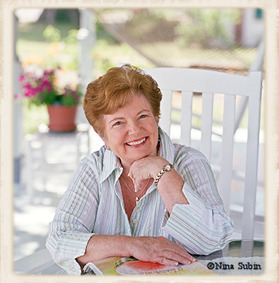 spanning two or three decades. It is such a pleasure to have this opportunity to interview her; hearing about her rituals, her work space and what keeps her writing over the years.
spanning two or three decades. It is such a pleasure to have this opportunity to interview her; hearing about her rituals, her work space and what keeps her writing over the years.
Q. Where do you write? Do you have a special room, shed, barn, special space for your writing?
A. I have two spaces for writing, since I split my life between two states. In Florida, I have an official office in a condo separate from the one in which I live. I actually walk to work...across a parking garage, which isn't exactly scenic, but gets me there under the "shortest distance" theory. My view includes a tiny glimpse of the ocean, a slightly better view of Biscayne Bay and a snippet of the Miami skyline. That said, I rarely look up from my computer long enough to see any of it!
Trish, the little purple figures are Figment, from the World of Imagination at Disney's Epcot. My first one was a little bumped around, so a friend gave me a new "healthy" version. But I'd never give something up just because it has a little age on it!
Sorry, but I don't have an pictures of me in my work space. Sherryl
In my Virginia office, which amounts only to a desk in a guest bedroom, I look straight out at a beautiful crepe myrtle tree, which is filled with pink blossoms in late summer. I also have a glimpse of my vegetable garden and enjoy the company of a slew of noisy birds!
Q. Do you have any special rituals when you sit down to write? (a neat work space, sharpened #2 pencils, legal pad, cup of tea, glass of brandy, favorite pajamas, etc.)
A. I head out at 6:30 a.m. daily in Florida, pick up my iced mocha at Starbucks, then plant myself in front of the computer till my pages for the day are written. In Virginia -- where the closest Starbucks is almost an hour away -- I just plant myself in front of the computer. I do think that iced mocha makes me writer faster!
Q. What is your mode of writing?
A. My brain connects directly to the computer, which is ironic, since years ago when I still worked for newspaper, they had to drag my old-fashioned standard typewriter away from me as I kicked and screamed. It's taken a lot of years but I have -- mostly, anyway -- adapted to modern technology.
Q. Do you have a set time each day to write or do you write only when you are feeling creative?
A. I don't have time to wait for my muse to turn up. I'm at the computer every day by seven and write until I've met my page count -- 10-15 pages.
Q. What’s your best advice to other writers for overcoming procrastination?
A. I don't really have any advice. Every writer has to find the creative process and motivation that works for them. I came out of journalism, where deadlines were an essential part of my life. They still are and I'm compulsive about meeting them.
Q. Do you ‘get lost’ in your writing and for how long?
A. I certainly hit wonderful moments in my story when the characters take over and speak to me at odd times of the day or night, but in terms of actual writing, I stick to the schedule.
Q. Who or what is your “Muse” at the moment?
A. I've always joked that the threat of starvation was an excellent motivator. I don't know that it sparks creativity, but in the early days of low advances and no other income, it certainly kept me in my chair in front of the computer.
Q. When did you begin to write seriously?
A. I left the newspaper business in 1980 and started trying to write romances during a lull before I went in search of another job. I'd just started a new career at a medical center when my first book was published in 1982. I kept working and writing till 1986, when I decided to take the plunge and write full-time. Thank goodness it worked out.
Don't Miss Part 2 this thursday, March 20th! Click here to read my REVIEW of Sherryl's "Home to Seaview Key"
~~~~~~~~~~~~~~~~~~~~~~~~~~~~~~~~~~~~~~~~~~~~~~~~~~~~~~~~~~~~~~~~~~~~~~~~~~~~~~~~~~~~~~~~~~~~
DON'T MISS UPCOMING BLOGS featuring INTERVIEWS with best-selling AUTHORS!
In addition to my twice weekly blog I also feature an interview with another author once a month. So come along with me; we shall sneak into these writers' special places, be a fly on the wall and watch them create! Dean Koontz just granted me an interview and will be featured here this spring!
To receive my posts sign up for my  On the home page, enter your email address. Thanks!
On the home page, enter your email address. Thanks!
March 16, 2014
Coming Tuesday! My Interview with author, Sherryl Woods
Author, Sherryl Woods
After decades of enjoying Sherryl's writing, Pinch me!...I'm interviewing her. Don't miss this coming week (Tues. and Thurs.) and my two part chat with this prolific author.
About Sherryl Woods: With her roots firmly planted in the South, Sherryl Woods has written many of her more than 100 books in that distinctive setting, whether her home state of Virginia, her adopted state, Florida, or her much-adored South Carolina. She's also especially partial to small towns wherever they may be. In Amazing Gracie, as in her later Trinity Harbor series, Woods creates a fictional version of the town where she spends summers on the shores of the Potomac River. "This town just lends itself to fascinating characters and a charming locale," she says.
A member of Novelists Inc., Sisters in Crime and Romance Writers of America, Sherryl divides her time between her childhood summer home overlooking the Potomac River in Colonial Beach, Virginia, and her oceanfront home with its lighthouse view, in Key Biscayne, Florida. "Wherever I am, if there's no water in sight, I get a little antsy," she says.…
~~~~~~~~~~~~~~~~~~~~~~~~~~~~~~~~~~~~~~~~~~~~~~~~~~~~~~~~~~~~~~~~~~~~~~~~~~~~~~~~~~~~~~~~~
DON'T MISS UPCOMING BLOGS featuring INTERVIEWS with best-selling AUTHORS!
In addition to my twice weekly blog I also feature an interview with another author once a month. So come along with me; we shall sneak into these writers' special places, be a fly on the wall and watch them create! Dean Koontz just granted me an interview and will be featured here this spring!
To receive my posts sign up for my  On the home page, enter your email address. Thanks!
On the home page, enter your email address. Thanks!
March 13, 2014
How Do You Know When you've Lived Too Long?
 I got to thinking....the world is passing me by ...I can't keep up ....my knees are too bad. So when do you start to think 'maybe I've just been around too long?' Here are some clues:
I got to thinking....the world is passing me by ...I can't keep up ....my knees are too bad. So when do you start to think 'maybe I've just been around too long?' Here are some clues:
when you don’t know any of the songs on American Idol
When you don’t recognize anyone on the ‘red carpet’
When you put your cup of coffee/tea in the frig instead of the microwave to warm it up
When you’re very good at opening childproof caps…. with a hammer
When you take a nap at 4 in the afternoon against your will
When you have your own teeth but they’re mostly fillings
When you call customer service for help and get someone who can speak English, but can't understand English.
When you are not shy to ask for a ‘senior discount’
When you have to get up 3-4 times in the night to go
When you’re only cranky when it comes to traffic, waiting, children, politicians, customer service and know-it-alls
When you find yourself saying, ‘excuse me?’ or ‘huh?’ too many times
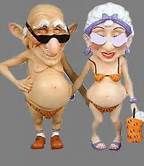 When you’re wrinkled, saggy and lumpy, and that's just your left leg
When you’re wrinkled, saggy and lumpy, and that's just your left leg
When you have trouble remembering simple words like... uh...
 When you’re the life of the party... as long as it doesn’t last past 8pm
When you’re the life of the party... as long as it doesn’t last past 8pm
When anyone under thirty years of age looks like they’re twelve
When you used to drive five miles over the speed limit and now drive five miles under
When you find yourself talking back to the automated voice while you're on hold
Mostly I am poking fun at myself. The upside of things is that, in this last quarter of my life, 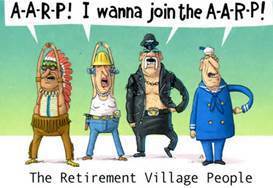
I have to put up with.....damn little!!!
~~~~~~~~~~~~~~~~~~~~~~~~~~~~~~~~~~~~~~~~~~~~~~~~~~~~~~~~~~~~~~~~~~~~~~~~~~~~~~~~~~~~~~~~~~~~
DON'T MISS UPCOMING BLOGS featuring INTERVIEWS with best-selling AUTHORS!
In addition to my twice weekly blog I also feature an interview with another author once a month. So come along with me; we shall sneak into these writers' special places, be a fly on the wall and watch them create! Dean Koontz just granted me an interview and will be featured here this spring!
To receive my posts sign up for my  On the home page, enter your email address. Thanks!
On the home page, enter your email address. Thanks!
March 11, 2014
"Emma and the Lost Unicorn" performing at the Villagers Theatre in New Jersey
NEWS!! The Fabled Forest Series (children's plays), will be a part of
Villagers Theatre’s 2013-2014 Season!

NOW RUNNING THROUGH MARCH 16TH.
Located in Somerset, New Jersey this community theatre has two stages and a diverse season.
March 8--16 with Fri., Sat., and Sunday performances
Tickets: $15.
Reservations: 732-873-2710[image error]
Visit their web site for more...
http://www.villagerstheatre.com/viewproductions/emma-and-the-lost-unicorn/
Rainey, the unicorn, is a prince who has been banished, for centuries, by the warlock, Hazard. He can never return home unless Emma solves more riddles than Kodak. Hazard’s Lieutenant reveals his secret weakness. The fable ends with a surprise twist which will delight readers young and old. While written for children, this fairy tale is sophisticated enough to appeal to adults as well.
Queens, warlocks, faeries, elves, unicorns, handmaidens, scary henchmen and one small mortal girl child, in an enchanted forest. The rhetorical owl and naughty elf provide much laughter. This parable offers many subtle lessons.
// ]]>
// ]]>
~~~~~~~~~~~~~~~~~~~~~~~~~~~~~~~~~~~~~~~~~~~~~~~~~~~~~~~~~~~~~~~~~~~~~~~~~~~~~~~~~~~~~~~~~~~~~~~~~~
DON'T MISS UPCOMING BLOGS featuring INTERVIEWS with best-selling AUTHORS! "The Writer's Corner"
~~~~~~~~~~~~~~~~~~~~~~~~~~~~~~~~~~~~~~~~~~~~~~~~~~~~~~~~~~~~~~~~~~~~~~~~~~~~~~~~~~~
The Fabled Forest Series is available in paperback, e-books, and Audio books at audible.com
Call
Send SMS
Add to Skype
You'll need Skype CreditFree via Skype

